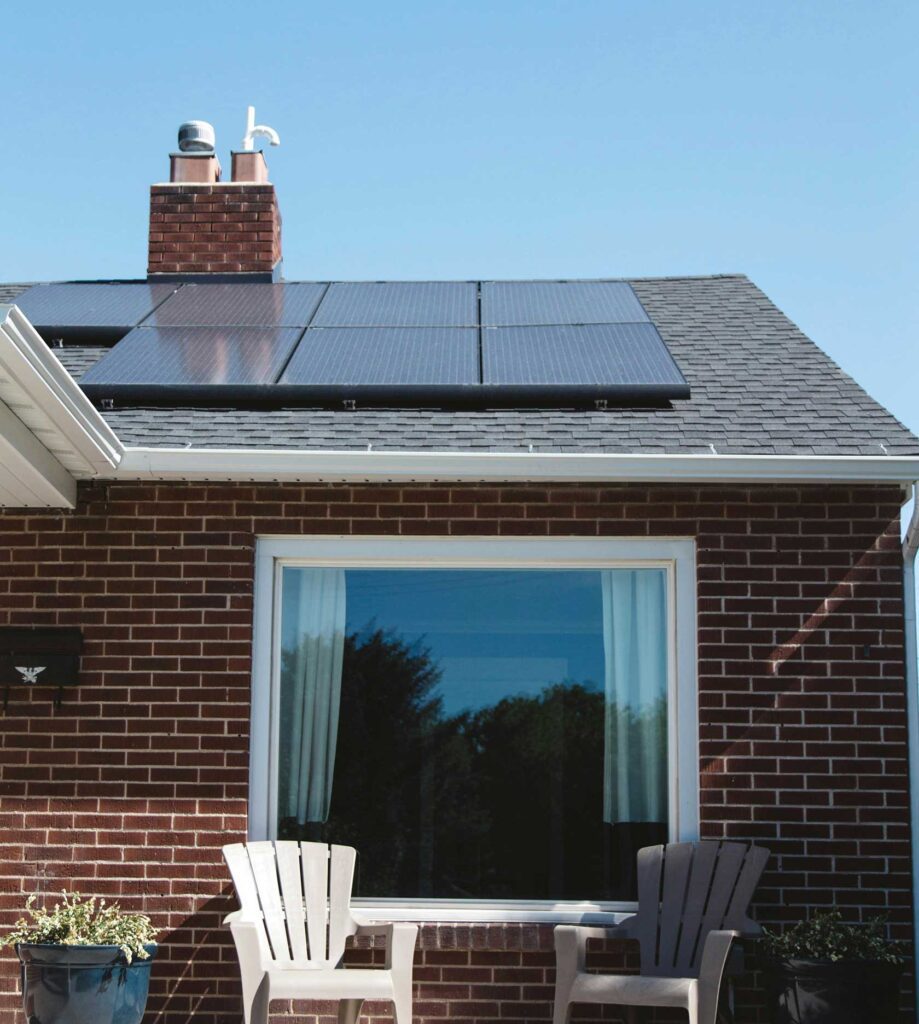
Deceptive and high-pressure sales tactics in third-party solar deals can leave rooftop solar panel customers in a lurch.
Under the deals, aggressively marketed these days in communities of color, homeowners pay a monthly fee to use a company’s solar panels on their roof and get the energy savings benefits that come from rooftop solar. The third-party owner reaps leasing fees and generous federal tax credits.
The sales tactics, like focusing on more vulnerable homeowners or creating a sense of urgency to push sales, hamper an industry that experts say could be an important component of increasing the state’s use of renewable resources.
“There’s been an increase in consumer complaints about rooftop solar sales and contracts,” said Jenifer Bosco, a senior attorney at the National Consumer Law Center. “It’s really unfortunate, because we believe this is an area where consumers really can benefit from renewable energy if these are done the right way.”
Salespeople sometimes target older homeowners or those with limited English proficiency and promise “free solar panels” — a claim that’s not entirely false, as the panels are sometimes installed with no upfront costs, but fails to mention the monthly fees the homeowner will have to pay over the decades-long contract.
They might overpromise the benefits of solar or make claims about how much a homeowner can save on their energy bills, claims that can’t hold up over the long run with changing utility rates.
Sometimes salespeople might say they are affiliated with the electric utility, but an Eversource representative said that the utility does not give its stamp of approval to any third-party solar installer.
Often, the salesperson at the door will push a homeowner to make a decision then and there, which Bosco warned against doing, given potentially hefty costs and the long timeline for the deals.
CNET, the consumer technology review outlet, put the average price for a solar array lease between $50 and $250 a month, which could mean a price tag of up to $75,000 over a contract that is often 20 or 25 years long.
Instead of making a choice on the spot, Bosco said consumers should get different quotes and figure out if a third-party solar deal is the right fit.
“Consumers really do need to take a step back, get some quotes from different contractors, figure out if it makes sense for them, figure out if they’re eligible for any programs or incentives, and not just sign up because there’s someone at your door saying, ‘This is this great deal, but you have to make a decision right now,’” Bosco said.
Corey Ramsden, vice president for Go Solar Programs at the D.C.-based nonprofit Solar United Neighbors, likened finding a third-party solar provider to seeking out a contractor for any other kind of home improvement.
“If someone’s coming to your house and selling you solar, regardless of how they’re financing it, you should pause and get more than one quote before you make a decision — just like you would with any other contract you might do for your home, like an air conditioner or any other home repairs,” he said.
Sales practices around third-party solar deals have been on the radar of Attorney General Andrea Campbell, who said the systems can be a “win-win” in a statement to the Banner.
Her office encouraged consumers to take their time when considering a deal and review contract terms around things like financial obligations, how long the contract will be in effect, maintenance, and what happens if a homeowner wants to move in the middle of what can be a multi-decade deal.
In the statement, Campbell said her office will continue to support consumers in making informed choices and to enforce consumer protection laws when they see bad actors operating in the market.
Third-party deals tend to take the form of either solar panel leasing or a power purchase agreement. In the former, like leasing a home or a car, homeowners pay a flat monthly fee for the panels and receive the electricity generated. The power purchase is more similar to paying a utility bill, where the customer pays for the energy generated by the solar array at a rate of a certain price per kilowatt-hour.
Either could be subject to escalators, elements written into the contract that raise those rates over time. Under either agreement, consumers are not eligible for the tax benefits under the Inflation Reduction Act that come with installing solar panels — those benefits go to the third party operator.
In Massachusetts, through a system called net metering, the energy from the rooftop panels goes first to the home those panels are on. If the household uses less energy than the panels generate in a month, then the customer gets a credit from their utility on their bill for the next month.
Ramsden said there’s no specific advantage between one model over the other. Power purchasing agreements may allow a homeowner to pay less in the winter, when there’s less energy generated, while leases offer a predictable monthly payment.
Other ways to go solar
Consumers looking to use solar power have other avenues, too. Bosco was hesitant to specifically endorse leasing or power purchasing agreements over the other, instead recommending that homeowners consider installing their own panels with a low-interest or no-interest loan.
“It would just be getting a loan,” Bosco said. “And, sort of like with a car, not relying on the dealership to give you a loan because you know that they may not be giving you the best terms.”
Last month, the Massachusetts Community Climate Bank, an initiative through the quasi-public agency MassHousing, launched a new program to offer loans to consumers to purchase solar panels and other clean energy upgrades to their home.
Bosco also pointed to community solar projects as another solution for renters or homeowners who can’t or don’t want to install panels on their own roof. Under one version of that approach, a customer pays monthly for a portion of a solar array that’s not located on their home and receives credits on their utility bill for the energy it generates.
Massachusetts has its own low-income community solar offerings through its Solar Massachusetts Renewable Target program. The SMART program is a way for people to get involved in the clean energy transition, but that system faces hurdles from limited community solar projects and a complicated billing set-up.
According to a representative for the state’s Department of Energy Resources (DOER), that department expects third-party solar deals to play a role as the state uses a mix of approaches to meet solar goals and net-zero carbon emissions by 2050.
The state’s 2050 Clean Energy and Climate Plan estimates a need for 27 gigawatts of solar capacity to reach the emissions reduction benchmarks. According to the Solar Energy Industry Association, the state’s capacity is at about 5 gigawatts.
DOER likened the concerns around sales to growing pains in a relatively young industry. Joseph Curtatone, president of the Northeast Clean Energy Council, said it’s something to watch out for as the industry develops, but not a death sentence for what he called accessible pathways to embrace solar.
“As our solar energy landscape evolves, informed choices empower homeowners to contribute to a sustainable future while enjoying the economic advantages of solar power,” Curtatone said “But we want to make sure they’re genuinely informed.”







